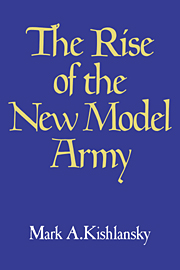5 - The Collapse of Parliamentary Politics
Published online by Cambridge University Press: 17 September 2009
Summary
In all ages those who sought their own greatness have always sought to diminish the power of Parliament.
The Civil War ended with the failure of the Newcastle propositions. The struggle between the monarch and his subjects, though inconclusive, had resulted in an unprecedented expansion of the powers and responsibilities of the Houses of Parliament. Deserted by the King, proprietor of executive and administrative duties, the body of legislative consultants had acquired the full scope of civil power. But neither they nor their supporters yet translated de facto jurisdiction into de jure authority. Parliament made no claims to supremacy and had no pretensions to self-sufficiency. For four years the justification of Parliament's rule had been its single-minded effort to achieve accommodation with the King and to reunite the institutions of government. “My principles,” averred Sir William Waller in order to demonstrate his steadfast adherence to them, “were grounded upon the public interest, and had no other ends than what are laid down in the Declarations of Parliament, and the national league and covenant; that religion might be reformed and maintained; the person, dignity, and honor of the King preserved, and the peace and safety of the Kingdom settled.” The formations of armies, the treaty with the Scots, the imposition of taxation, indeed the entire superstructure of centralized local administration were expedients to deal with the crisis of war.
- Type
- Chapter
- Information
- The Rise of the New Model Army , pp. 105 - 138Publisher: Cambridge University PressPrint publication year: 1980



